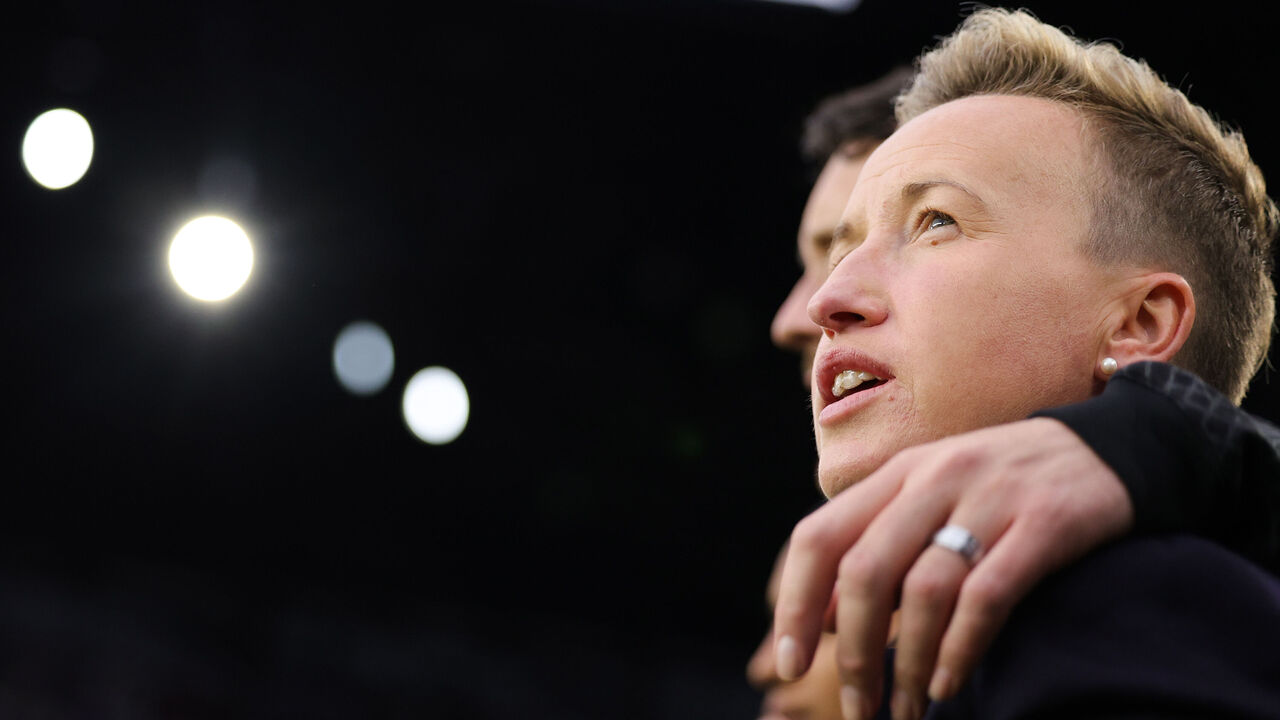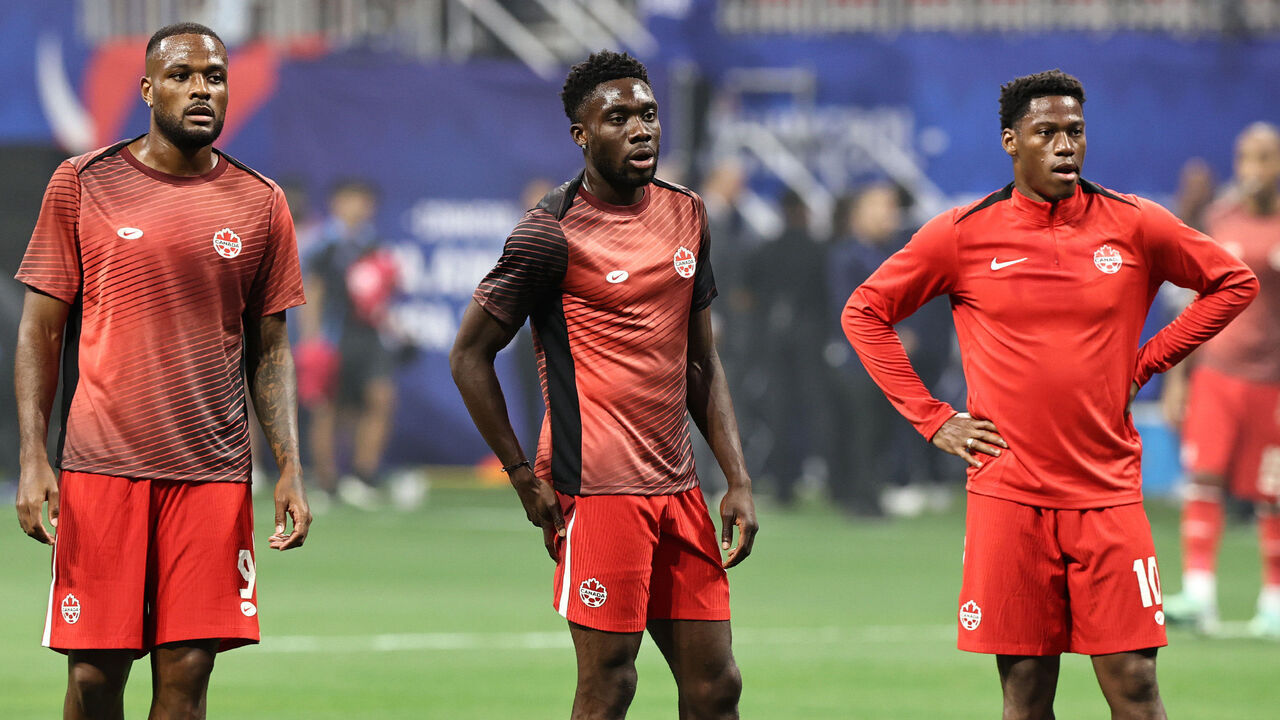Canada's latest Olympic scandal is stunningly embarrassing
At least with doping, you know the improvement is measurable.
In Canada's worst-ever Olympic scandal, when Ben Johnson tested positive for steroids after winning the 100-metre sprint in record time in 1988, there was no disputing what his cheating accomplished. He was impossibly and illegally fast, even if it turned out over the years that essentially the entire Seoul sprint field took illicit substances.
But Canada's next-worst Olympic scandal - and there's no doubt the drone-spying that led to the removal of women's soccer coach Bev Priestman from Paris 2024 is exactly that - is a lot more hazy.
There was cheating, to be clear, but to what end?
Even if attempts to record opponent practices were remarkably successful over a period that reportedly stretches back to at least the gold-medal triumph in Tokyo in 2021, and even if members of the Canadian coaching staff were surprisingly adept at secretly obtaining footage of those training sessions, what information would be gleaned from those efforts?
Perhaps some hint as to what formation an opponent was planning to use. Certainly a sense of set-piece routines. Maybe even penalty-kick plans: takers and preferences.
All of which can almost entirely be learned from the totally legal practice of studying publicly available game film, which makes this quite possibly one of the stupidest scandals in memory.
Or, put another way, one of the dumbest ways for a country's soccer program to destroy its reputation.

None of this is to minimize the fact cheating took place. While there was a brief period this week when the most generous interpretation of developments allowed for the possibility that a couple of rogue coaches took it upon themselves to try to find an edge by sending a drone up over a couple of New Zealand training sessions, it now seems far more likely Priestman was aware of ongoing efforts to conduct spying operations.
I was willing to at least consider the possibility of overly enthusiastic underlings trying to please the boss - it's basically the main setup of the current season of "House of the Dragon" - but even the Canadian Olympic Committee is admitting this seems to go much deeper than that. And that's particularly embarrassing for the COC, which overtly ran marketing campaigns in recent years that made a point of touting the general nobility of Canada's Olympic pursuits. "Virtue is victory" was one of the tag lines from the advertisements for the "Be Olympic" spots that ran before the 2018 Olympics in Korea.
Awkward, that.
The problem staring Canada Soccer in the face now (and to a lesser extent the entire Canadian contingent in Paris) is that even if the actual cheating only managed to obtain the slightest of edges, there's no way to say for certain that edges weren't gained, immorally if not illegally, over any of the period when Canada's women's and men's national soccer teams have enjoyed the best runs in their history. Were the Olympic medals on the women's side earned primarily because of the talents of Christine Sinclair, Stephanie Labbé, and the rest of that gutsy team? Were the men buoyed by the skill and speed of Alphonso Davies, Cyle Larin, and Jonathan David? Of course and of course. But were they also cheating a little? Maybe. It's impossible to prove a negative.

In the Russian doping scandal that began with leaks about a state-engineered system created for Sochi 2014, part of the problem with assessing the consequences was that there was no way to trust anything that was coming out of Russia's anti-doping authorities. The entire operation had been tainted, so even when Russian athletes tested clean, their competitors still harboured doubts. The Russians who didn't cheat might have had it worse than anyone. None of the benefit, all of the judgement.
On a much smaller scale, something similar is happening here. Reports out of Paris suggest Priestman's players know their reputations have taken a serious hit, even if all they ever did was train hard and try to leave it all on the pitch. The same is true of the men's team: I don't imagine that drone-related hijinks played a significant role in its magical run to the top of the CONCACAF qualifying group for the last World Cup, but if investigations now underway determine that spying was standard procedure, that stain won't be scrubbed away easily. (The easy joke here is to note that in that World Cup, Canada played three and lost three and was outscored 7-2. Did it look like a team that had an unfair advantage?)
The best Canada can hope for now is that the usual flood of Olympic stories means the drone business is lost somewhat in the waves. The defending Olympic gold medalists have a win over New Zealand in the bank - pending possible disciplinary action - and play France on Sunday. Would they even celebrate a win over the hosts? Feel kind of embarrassed by it?
Such are the uncomfortable questions Canada Soccer's now facing. Through a problem that's entirely its own making.
Scott Stinson is a contributing writer for theScore
HEADLINES
- Johnson, Wembanyama fuel Spurs to win over Doncic, Lakers
- Chiefs aware of domestic violence allegations that appear directed at Rice
- Raiders pass rusher Maxx Crosby undergoes knee surgery
- Trae might be damaged goods, but he's a worthwhile bet for Wizards
- Gilgeous-Alexander nets 46, Thunder beat Jazz in OT